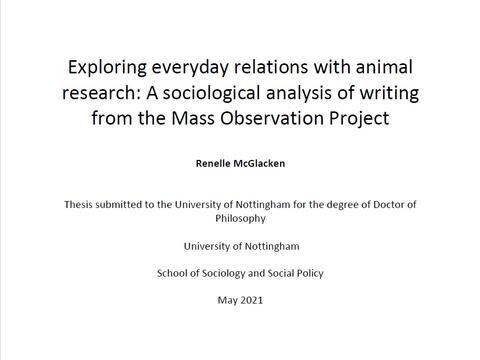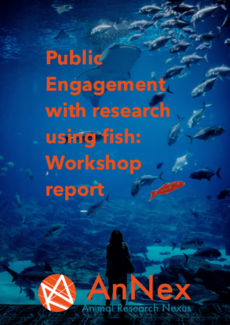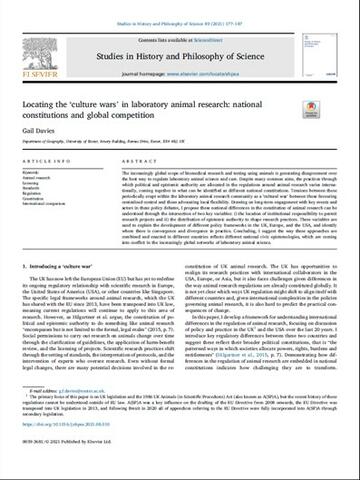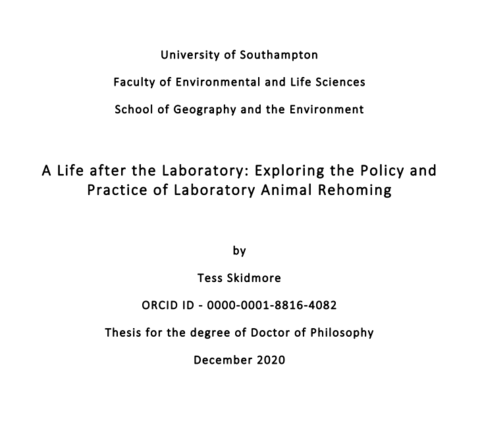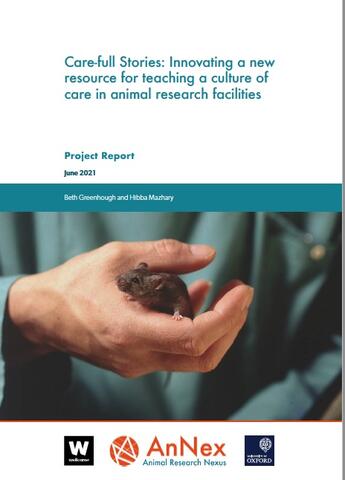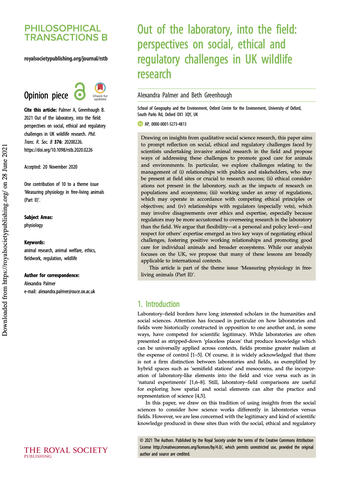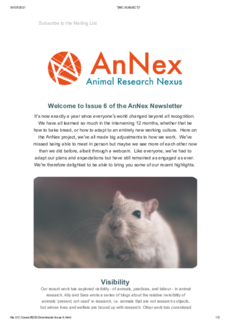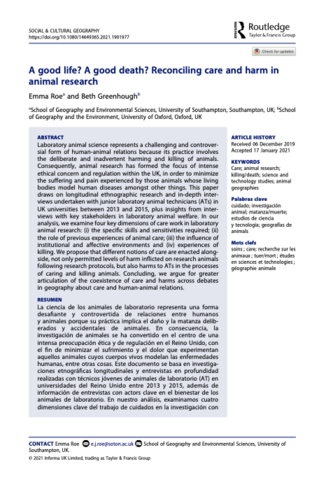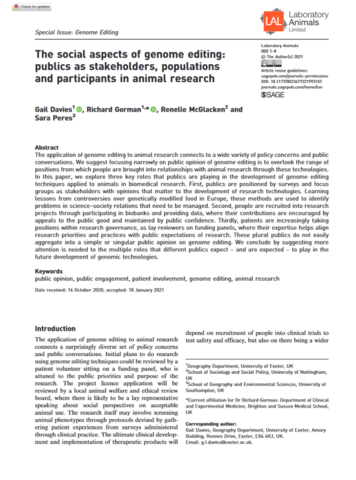Publications
This thesis explores how the topic of laboratory animal research is related to in everyday life in the UK, providing a sociological analysis of practices of knowing, caring, and constructing necessary biomedical uses of animals. In doing so, it develops the few qualitative studies of societal understandings of animal research, aiming to expand analyses in this area beyond measurement of polarised and static notions of acceptance or opposition. Instead, this thesis approaches understandings of animal research as relational and positional, emerging within particular yet shared social worlds which give the issue meaning in the everyday.
Fish are the third most commonly used protected species in research (Understanding Animal Research, 2021) and are increasingly used in initiatives to engage publics with biomedical research. This workshop was convened in order to explore these developments, share experiences, and assess the challenges and opportunities of including discussion of fish welfare in relevant public engagement activities.
The increasingly global scope of biomedical research and testing using animals is generating disagreement over the best way to regulate laboratory animal science and care. Despite many common aims, the practices through which political and epistemic authority are allocated in the regulations around animal research varies internationally. This article proposes a framework for understanding and thinking across national differences in the regulation of animal research.
This thesis, written by Tess Skidmore, explores the rehoming of laboratory animals. Drawing on qualitative interviews and a semi-structured questionnaire, the thesis investigates the sociocultural and political importance of the growing attention toward rehoming.
In this new paper published in the Vet Record journal, Alistair Anderson and Pru Hobson-West report findings from the project which focuses on the role of the UK Named Veterinary Surgeon. The article focuses on why and how vets move from a clinical role, into an animal research role. The paper concludes that laboratory animal work is often considered by NVSs as more manageable or fulfilling than practice work.
This report describes the design, piloting and evaluation of a 2–3-hour training exercise that uses storytelling to reflect upon the culture of care in animal research establishments.
Drawing on insights from qualitative social science research, this paper aims to prompt reflection on social, ethical and regulatory challenges faced by scientists undertaking invasive animal research in the field. We explore challenges relating to the management of (i) relationships with publics and stakeholders; (ii) ethical considerations not present in the laboratory; (iii) working under an array of regulations; and (iv) relationships with regulators (especially vets). We argue that flexibility—at a personal and policy level—and respect for others’ expertise emerged as two key ways of negotiating ethical challenges, fostering positive working relationships and promoting good care for individual animals and broader ecosystems.
Our recent work has explored visibility - of animals, practices, and labour - in animal research.
Laboratory animal science represents a challenging and controversial form of human-animal relations because its practice involves the deliberate and inadvertent harming and killing of animals. We propose that different notions of care are enacted alongside, not only permitted levels of harm inflicted on research animals following research protocols, but also harms to ATs in the processes of caring and killing animals.
The application of genome editing to animal research connects to a wide variety of policy concerns and public conversations. In this paper, we explore three key roles that publics are playing in the development of genome editing techniques applied to animals in biomedical research: as publics, as populations, and as participants.
